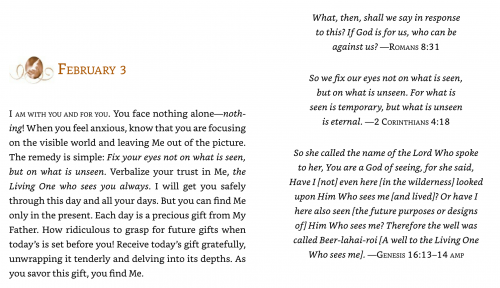The imagination should be
allowed a certain freedom to browse around.
—Thomas Merton, Contemplation in a World of Action
Basic religious faith is a vote for some coherence, purpose, benevolence, and direction in the universe. Unfortunately, the notion of faith that emerged in the West was much more a rational assent to the truth of certain mental beliefs rather than a calm and hopeful trust that God is inherent in all things, and that this whole thing is going somewhere good.
I worry about “true believers” who cannot carry any doubt or anxiety at all, as Thomas the Apostle and Saint Teresa of Calcutta (1910–1997) learned to do. Doubt and faith are actually correlative terms. People of great faith often suffer bouts of great doubt because they continue to grow. Mother Teresa experienced decades of this kind of doubt, as was revealed after her death. In a letter to a trusted spiritual director she wrote, “Darkness is such that I really do not see — neither with my mind nor with my reason. — The place of God in my soul is blank. — There is no God in me.” [1] The very fact that the world media and people in general were scandalized by this demonstrates how limited is our understanding of the nature of biblical faith.
It seems a movement from certitude to doubt and through doubt to acceptance of life’s mystery is necessary in all encounters, intellectual breakthroughs, and relationships, not just with the Divine. Human faith and religious faith are much the same except in their object or goal. What set us on the wrong path was making the object of religious faith “ideas” or doctrines instead of a person. Our faith is not a faith that dogmas or moral opinions are true, but a faith that Ultimate Reality/God/Christ is accessible to us—and even on our side.
To hold the full mystery of life is always to endure its other half, which is the equal mystery of death and doubt. To know anything fully is always to hold that part of it which is still mysterious and unknowable. Our youthful demand for certainty does eliminate most anxiety on the conscious level, so I can see why many of us stay in such a control tower during the first half of life. We are too fragile yet.
Author Sue Monk Kidd has written eloquently about the disruption spiritual seekers often encounter in midlife and our resistance to it. She wonders:
What has happened to our ability to dwell in unknowing, to live inside a question and coexist with the tensions of uncertainty? Where is our willingness to incubate pain and let it birth something new? What has happened to patient unfolding, to endurance? These things are what form the ground of waiting. And if you look carefully, you’ll see that they’re also the seedbed of creativity and growth—what allows us to do the daring and to break through to newness. . . . Creativity flourishes not in certainty but in questions. Growth germinates not in tent dwelling but in upheaval. Yet the seduction is always security
